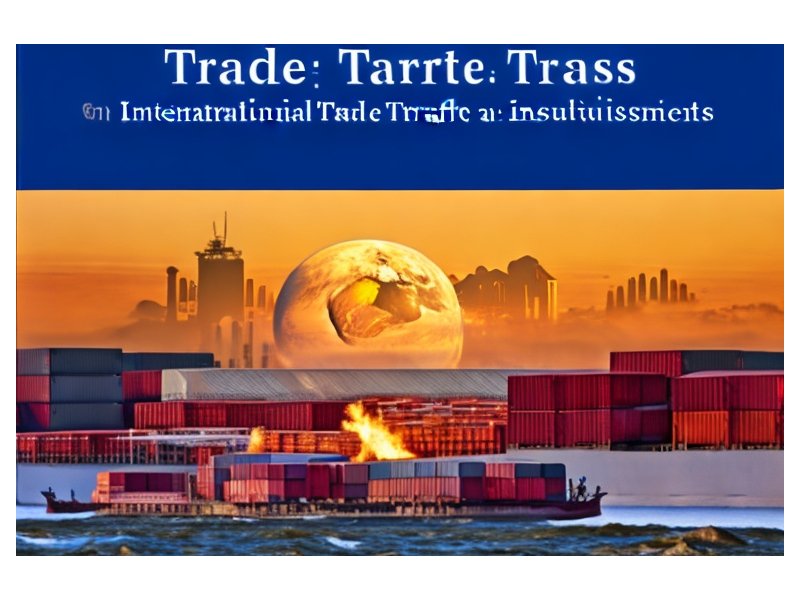
Introduction:
International trade plays a pivotal role in the economic growth and development of nations worldwide. Over the years, countries have engaged in trade agreements and implemented tariffs to protect domestic industries, foster economic cooperation, and create mutually beneficial relationships. In this blog post, we will delve into the impact of international trade, trade agreements, and tariffs on national economies and industries, exploring the advantages, challenges, and potential consequences of these policies.
The Importance of International Trade:
International trade facilitates the exchange of goods, services, and capital between nations, enabling specialization and the utilization of comparative advantages. It promotes efficiency, innovation, and economic growth by providing countries with access to a wider range of resources, markets, and opportunities. By engaging in trade, nations can focus on producing goods and services in which they have a competitive advantage, thus increasing productivity and overall welfare.
Trade Agreements: Enhancing Economic Integration:
Trade agreements serve as a framework for reducing barriers to trade and promoting economic integration between participating nations. These agreements typically involve the lowering of tariffs, removal of non-tariff barriers, and the establishment of common rules and regulations. Regional trade agreements, such as the European Union (EU) and the North American Free Trade Agreement (NAFTA), have significantly impacted participating countries' economies and industries.
Trade agreements stimulate cross-border investment, promote the exchange of knowledge and technology, and encourage business competitiveness. They foster job creation, improve consumer choices, and lower prices through increased market competition. Additionally, trade agreements often provide legal certainty and dispute settlement mechanisms, reducing uncertainty and enhancing trust among trading partners.
Tariffs: Protecting Domestic Industries or Hindering Growth?
Tariffs, on the other hand, are taxes imposed on imported goods and services, intended to protect domestic industries from foreign competition. While tariffs can shield local producers from international competition, they can also hinder economic growth and raise costs for consumers. High tariffs restrict access to foreign markets, limiting export opportunities for domestic businesses.
The imposition of tariffs can lead to retaliatory measures by other countries, triggering trade wars that negatively affect global trade and economic stability. Furthermore, tariffs distort resource allocation, as they encourage the production of protected industries at the expense of other sectors where a country may have a comparative advantage. This can lead to inefficiencies and decreased productivity in the long run.
Balancing National Interests:
Governments face the challenge of striking a balance between protecting domestic industries and reaping the benefits of international trade. They must carefully consider the potential consequences of trade policies, trade agreements, and tariffs on various sectors of the economy.
A comprehensive approach involves implementing policies that foster competitiveness, innovation, and adaptation within domestic industries. Governments can support industries through investments in research and development, education and training programs, and infrastructure development. This approach allows industries to thrive in the face of international competition, rather than relying solely on protectionist measures.
Conclusion:
Global trade and tariffs have a profound impact on national economies and industries. Trade agreements promote economic integration, encourage specialization, and enhance overall welfare. However, tariffs can hinder economic growth and lead to trade tensions among nations. Striking the right balance between protectionism and openness is crucial for countries to leverage the benefits of international trade while safeguarding domestic industries. By implementing comprehensive policies that promote competitiveness and innovation, nations can navigate the complex landscape of global trade, benefiting their economies and industries in the long run.
Share This News